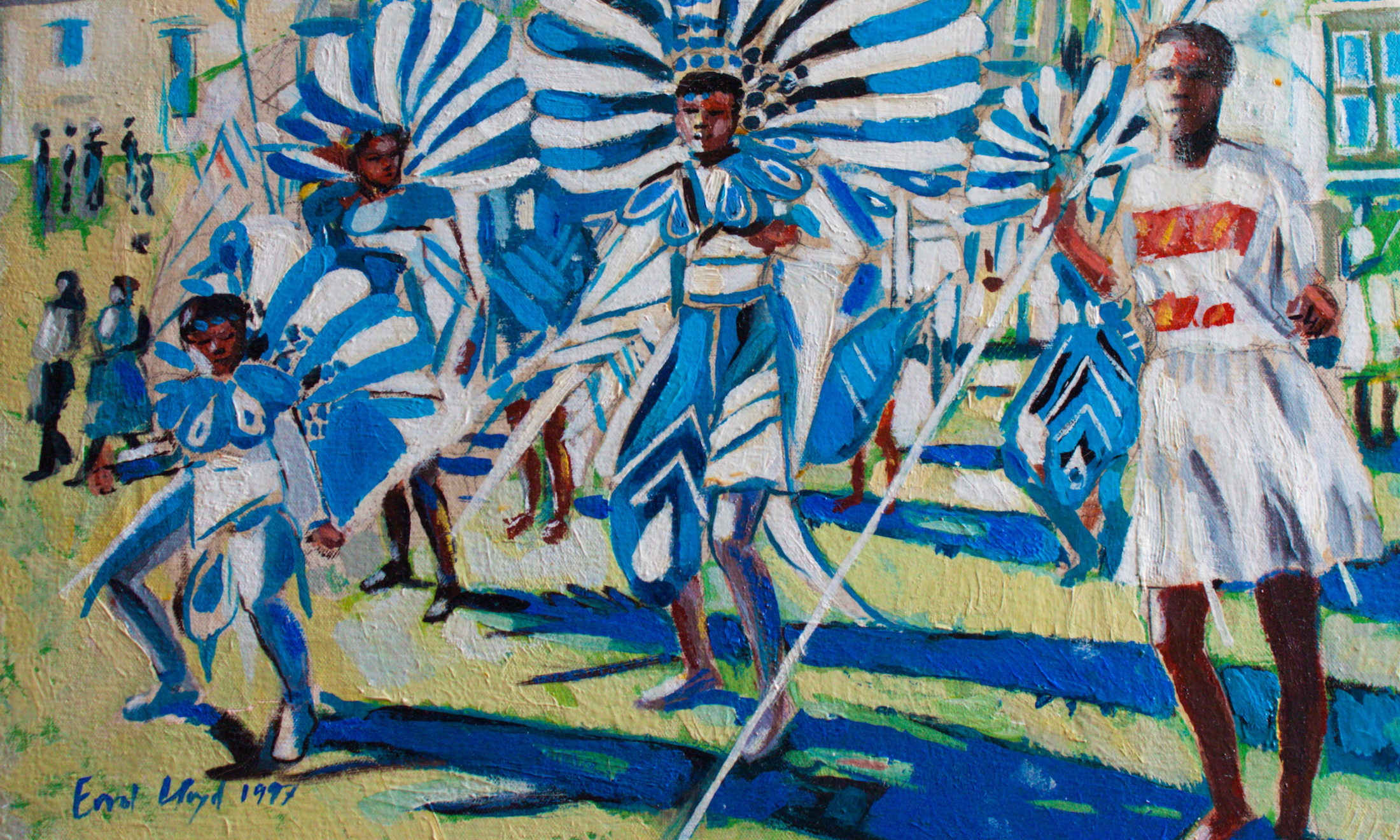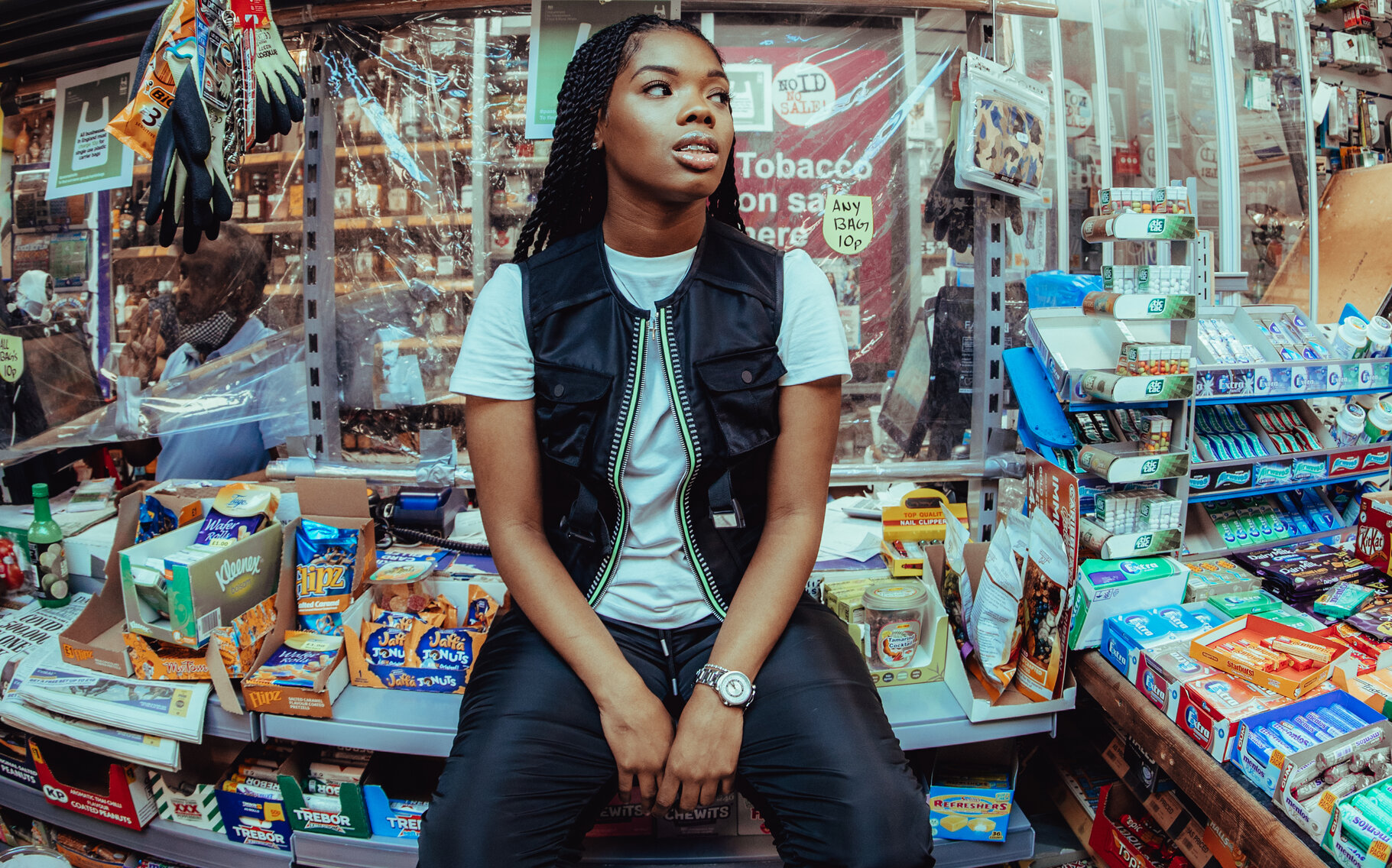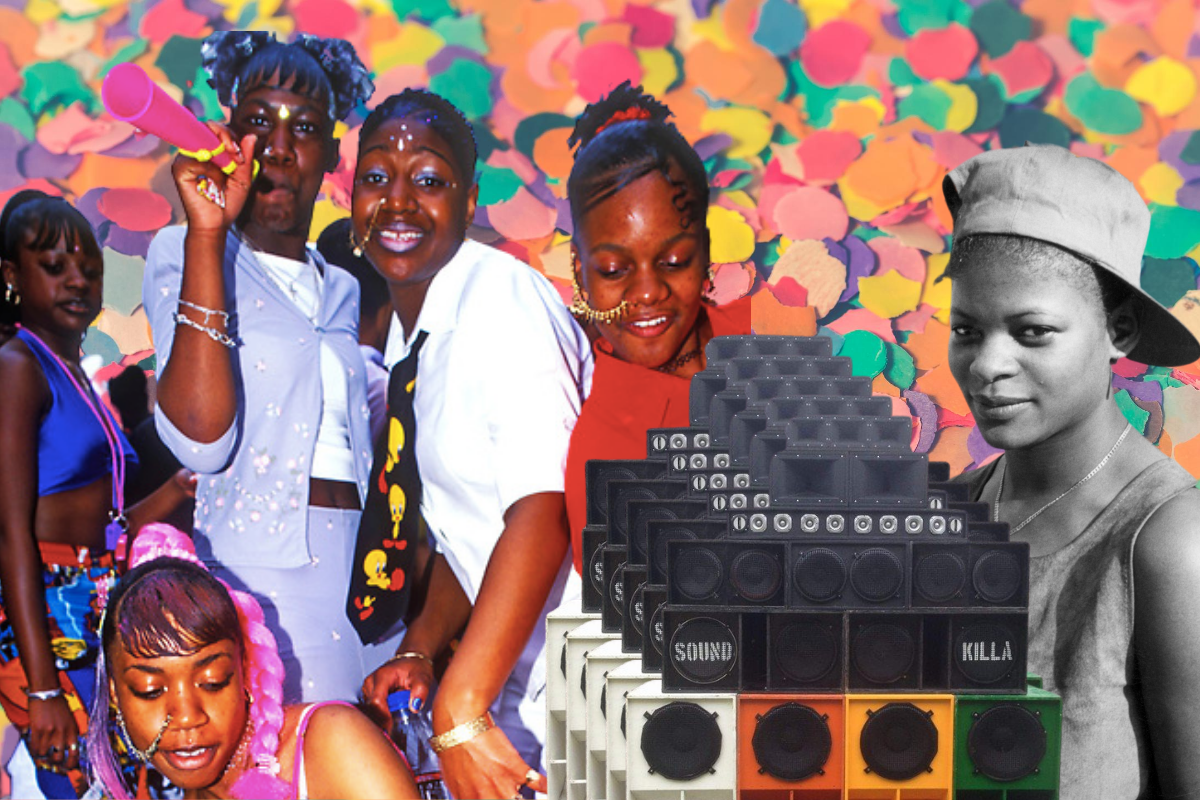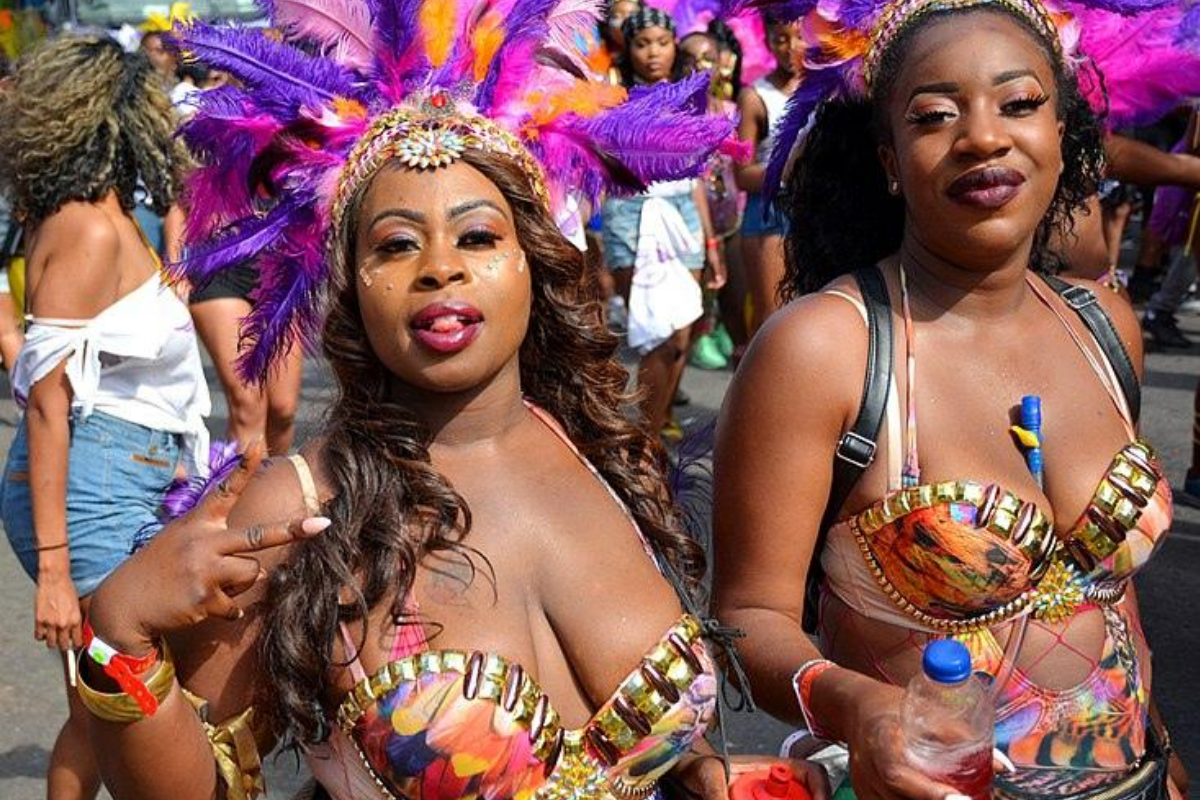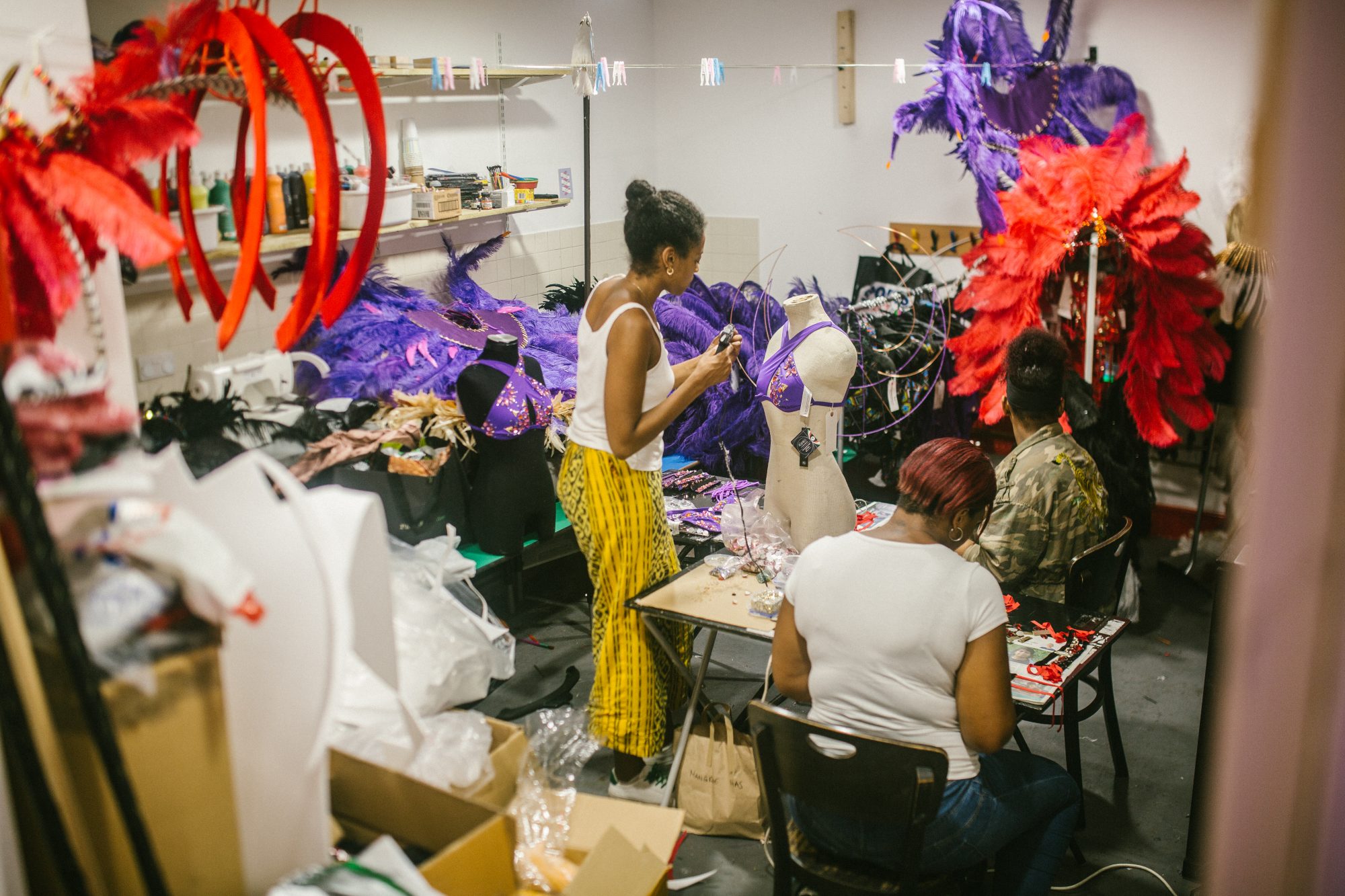
Photos by Rianna Tamara
In the run up to Notting Hill Carnival, gal-dem visited one of the oldest and most popular masquerade bands in London, the Mangrove Masquerade Band, based at The Tabernacle, in Notting Hill. They’ve been a prominent feature of the London carnival scene for 40 years, with elaborate costumes and an impressive steel band.
A ‘masquerade band’ or ‘mas band’ for short, is a term used to describe the costume and musical procession, usually steel pans, that we see most commonly at carnivals.
Debra Ann Eden is a band leader and soloist, who has been teaching the steel pan for 25 years. She founded the Cambridge University Steel Pan Society, which is celebrating its tenth anniversary this year. “Mangrove is what I’d call an institution,” she says. “it’s more than just a steel band – it’s a community, it’s an extension of our local area. The band itself has a history of being connected, engaging and welcoming to people from all over. I’ve never had anyone come here and say they feel unwelcome at Mangrove.”
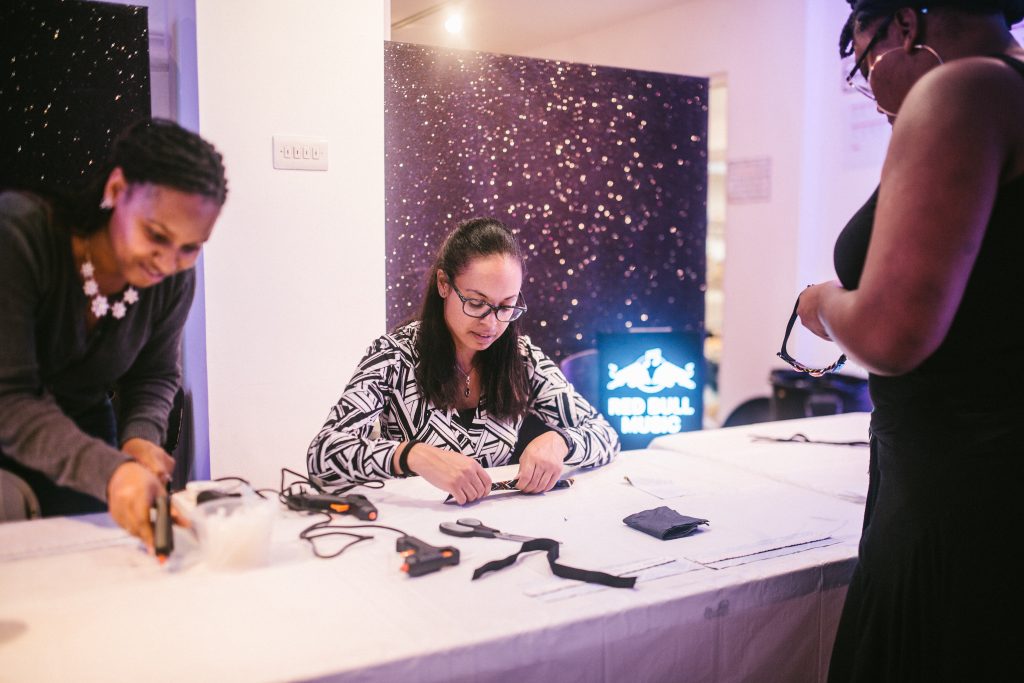 Misha Joseph, who led the collaborative workshop with Red Bull Music, is in her second year designing for Mangrove. She explains the concept for the costumes to me. “This year we’ve got four sections, they’re tribes from all around the world – we’ve got Maasai, Zulu, Lemhi and Lisu, Lisu is an east Asian tribe, Lemhi is a north American tribe, and then Maasai and Zulu are African tribes. The theme is tribal instincts, and each section has a frontline and a backline – the backline being a smaller version of the frontline’s costumes.”
Misha Joseph, who led the collaborative workshop with Red Bull Music, is in her second year designing for Mangrove. She explains the concept for the costumes to me. “This year we’ve got four sections, they’re tribes from all around the world – we’ve got Maasai, Zulu, Lemhi and Lisu, Lisu is an east Asian tribe, Lemhi is a north American tribe, and then Maasai and Zulu are African tribes. The theme is tribal instincts, and each section has a frontline and a backline – the backline being a smaller version of the frontline’s costumes.”
“Bring something of your own that you have that you feel comfortable in, and we will accommodate and gem that garment for you”
“The colours relate to the tribes, so we did a lot of research and used this information to make our costumes. It’s more than just colour referencing, we also try to use more traditional prints,” she says.
“Last year our theme was Huna, so the costumes had elements from the pacific islands, and we took inspiration from Polynesian gods. At the minute we’re trying to figure out what theme we want for next year, and we’re almost there!”
They have a launch event for the costumes, and this year they launched in December. From there, you fill out a registration form and sign up for an outfit, on a first-come-first-served basis. They have different options: “We always try to do an option for someone who maybe wants to be a little bit more conservative, where maybe it’s one piece, or you haven’t got your belly out.”
Tanya Edwards, a singer and actress who’s been a masquerader with Mangrove for over 10 years, goes on to tell us about her own experience with the band. “It is one of the only bands that I’ve jumped with who accommodate for absolutely everyone. It doesn’t matter what race or what size you are, and that’s quite important, especially for women on the road. You see all of these beautiful outfits, and you think ‘oh my god, how can I get in that costume, how will my boobs fit in that, or my bottom fit in this’, and what you can do with Mangrove, is bring something of your own that you have that you feel comfortable in, and we will accommodate and gem that garment for you.”
Misha also adds, “making people feel comfortable is what we aim for. If someone doesn’t feel comfortable in their costume, you’re going to see it.”
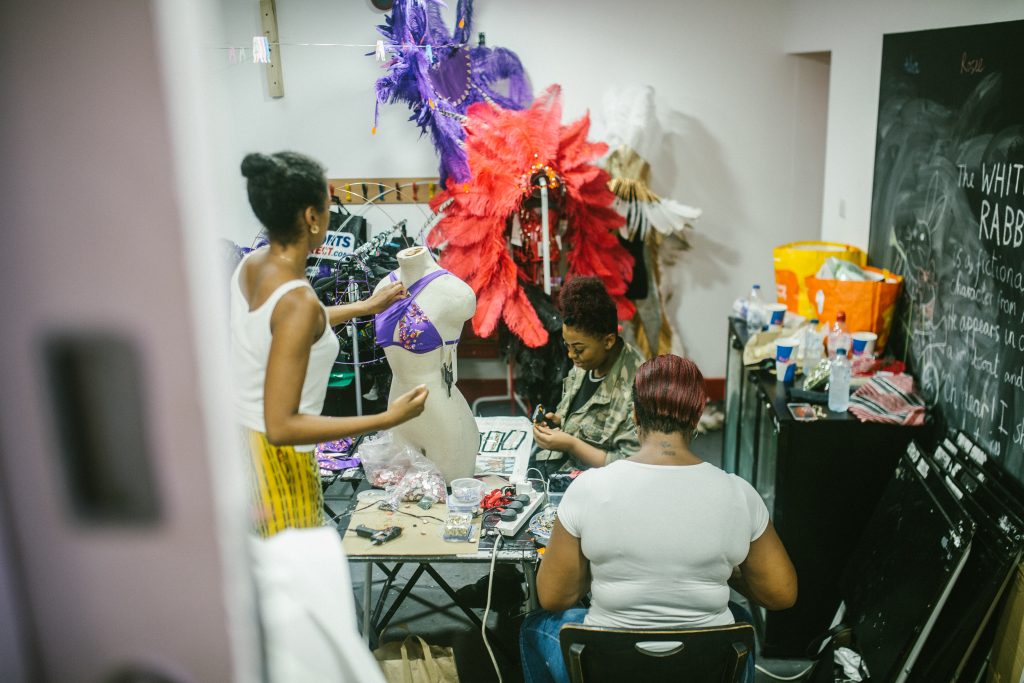
I asked Tanya about safety at Notting Hill Carnival. “Our security is so tight,” she explains. Mangrove has a team of people who look after their community over the two day event. “It’s more being respected as a masquerader, being in hardly any clothes and being able to safely whine on who you want to whine on, when you want to whine on them. If you don’t want to whine – you don’t get touched!”
Tanya says she couldn’t imagine jumping with anyone else. “It’s a huge family here – I’m talking about the steel pans and the masqueraders down to the cooks. You might not think you know everybody as such, but you do – everyone will say hello and come and talk to you.” Because it’s been a band that’s been active since the 1980s, there are the Veterans – the generation who pioneered the Mangrove Mas Band – “and they’ve always got their costume and their section. We’re all on the road together, and we all dance together.”
Misha highlights the importance of inclusivity within a Mas band. “The beauty of Mangrove in particular is that we have so many different races, creeds, sexualities all together – it’s really, really nice. I cannot stress how inclusive Mangrove is.”
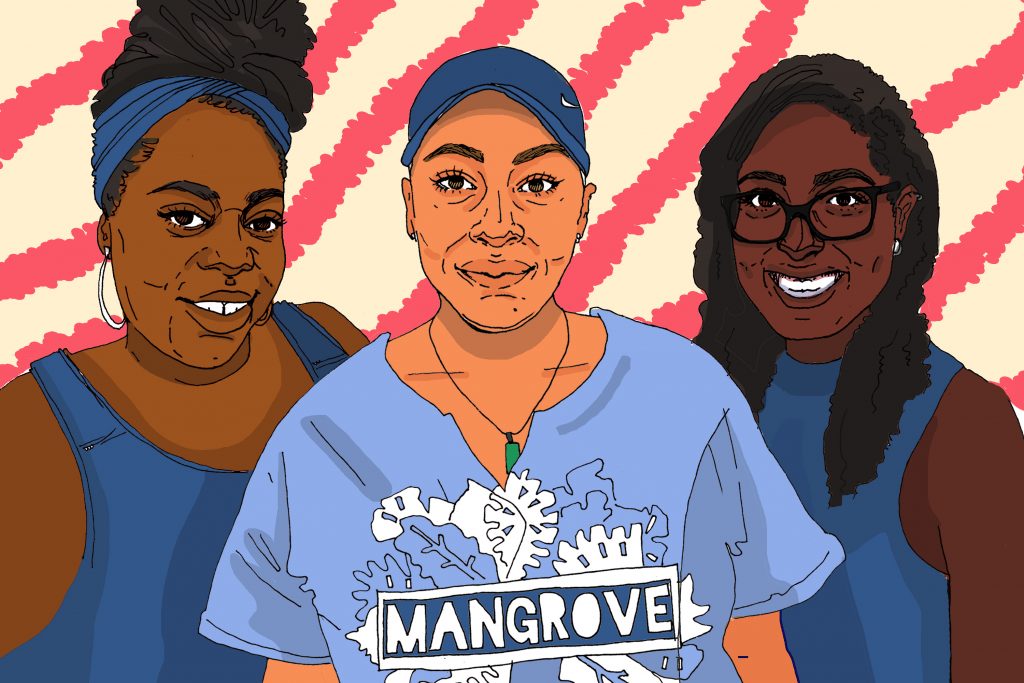
An illustration of the three women, by Nadia Akingblue
Being part of Mangrove is carrying on a tradition. “I’ve been to carnival every year since I was born. It’s almost compulsory in my household – you have to go to carnival. It means a lot, and it’s part of my heritage and my culture. My grandmother would’ve been going to carnival when she first came over from the Caribbean, so I guess it’s in my blood.”
Caroline Eastmond, was one of the first girls to join Mangrove back in 1983. “I joined the band as a pan player from The Tabernacle with my sisters and some other mates, and I’d actually played steel pan for a long time before I got involved with mas over at Mangrove,” she says. “The Mangrove started off with some pan players who decided to get together and form a band, it was lots of gentlemen, it wasn’t really a women’s thing. When we joined, there was only one other young lady (but her dad was in the band), so together we were the first girls. Before that, there were no female players.”
Up until recently, there were stereotypes that discouraged women from pursuing the steel pan. “Back in the day women who were in the pan yard at night time were frowned upon – you could get a bad reputation being a female pan player. Not so much in England, and certainly not when I joined, but it was definitely an issue back in Trinidad, and parts of the Caribbean. There’s an amazing amount of talented female pan players here at Mangrove, and there are lots of strong women around the bands in general. Not only do they play, but they arrange, and they teach.”
She explains the hardships that come with being a female pan player. “I stopped playing before I had my daughter, a lot of women stop playing when they have children. It’s difficult to play pan and have your children safe – it’s late nights, you have full time jobs, you need support, childcare – it’s not easy.”
“It’s more being respected as a masquerader, being in hardly ny clothes and being able to safely whine on who you want to whine on, when you want to whine on them”
When It first started there were no sound systems, they’d play pan for two and a half days solid, it was just us all day long. “Bands are starting to bring more pan back on the road, which I think is necessary. It’s not all about the sound systems – pan started it, and we should respect it. People haven’t got an idea of what goes on, they see the girls in their pretty costumes and they see the people playing the pans and they’ve got no insight into how it all got there – the late nights, the sweating, the ringing in your ears – it’s all volunteer work. But people are here for the love of pan and their bands, and I respect all the work and effort that goes into it.”
Debra Ann Eden talked to us about the future of carnival. “I’m on the Notting Hill Carnival advisory council, and we’ve worked really hard this year to make it the most fun and safe carnival to date. I felt that it was my inherited duty, and we need to know that carnival is going to be in safe hands, and it’s my time to do that now. I’m making sure that I’m doing whatever I can to help behind the scenes, in order to make this the greatest show yet and to make sure that it stays that way.”
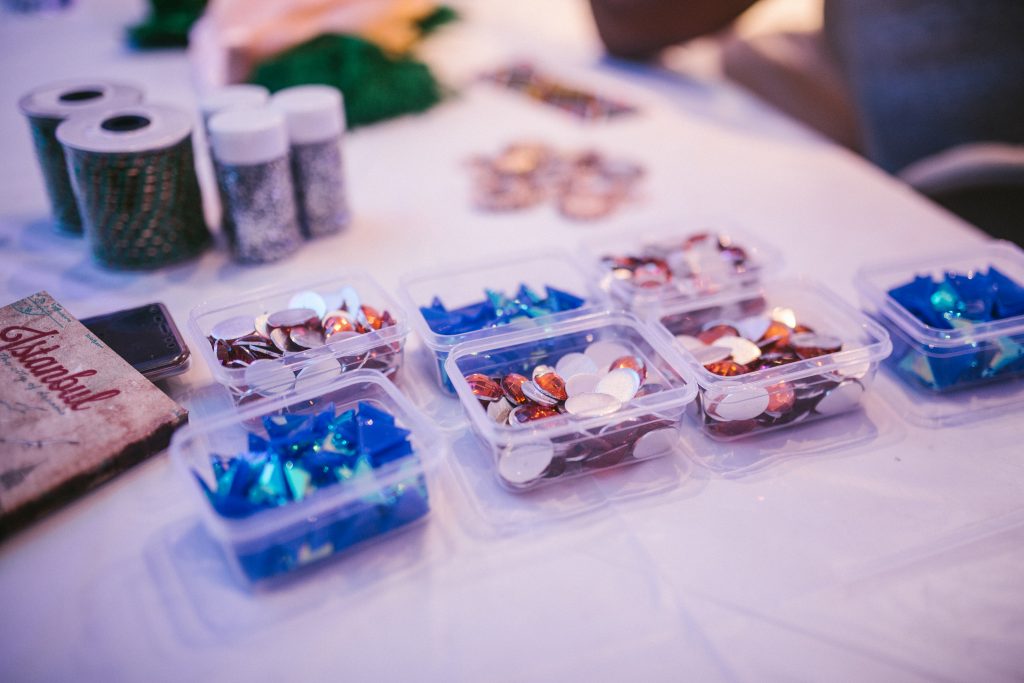 Given the current socio-political climate, many people have been concerned about this year’s Carnival. Debra explained her plan for this year’s events. “One of the things that I felt that we needed to do, was to work on the media’s response to us and the negative press that we’ve had over the years,” she says. “Rather than chasing or responding to negative press, we needed to be the ones to put out the positive stuff, so we made a really massive drive towards the media’s perception and the world’s perception towards us. We’ve made the carnival app, and the idea behind that is that we’ve got tracking devices on the band, so that the public knows which band is where.” This makes it safer for everyone, everyone knows where they’re going, and how many people are aiming to head in that direction. “It gives us a safety net, we can keep our eyes on things and make sure everyone’s having a good time.”
Given the current socio-political climate, many people have been concerned about this year’s Carnival. Debra explained her plan for this year’s events. “One of the things that I felt that we needed to do, was to work on the media’s response to us and the negative press that we’ve had over the years,” she says. “Rather than chasing or responding to negative press, we needed to be the ones to put out the positive stuff, so we made a really massive drive towards the media’s perception and the world’s perception towards us. We’ve made the carnival app, and the idea behind that is that we’ve got tracking devices on the band, so that the public knows which band is where.” This makes it safer for everyone, everyone knows where they’re going, and how many people are aiming to head in that direction. “It gives us a safety net, we can keep our eyes on things and make sure everyone’s having a good time.”
Make sure to catch the Mangrove Masquerade Band this Sunday and Monday at Notting Hill Carnival, and download the carnival app to keep up to date with the whereabouts of your favourite sound systems.
A special thank you to Red Bull Music for hosting the carnival workshops at Mangrove HQ, Nalini Boyce for educating us about the history of Mangrove, and Misha Joseph, Tanya Edwards, Caroline Eastmond, Debra Ann Eden for the interviews, as well as the entire Mangrove Mas Band community for giving gal-dem an insight into an authentic carnival experience.

